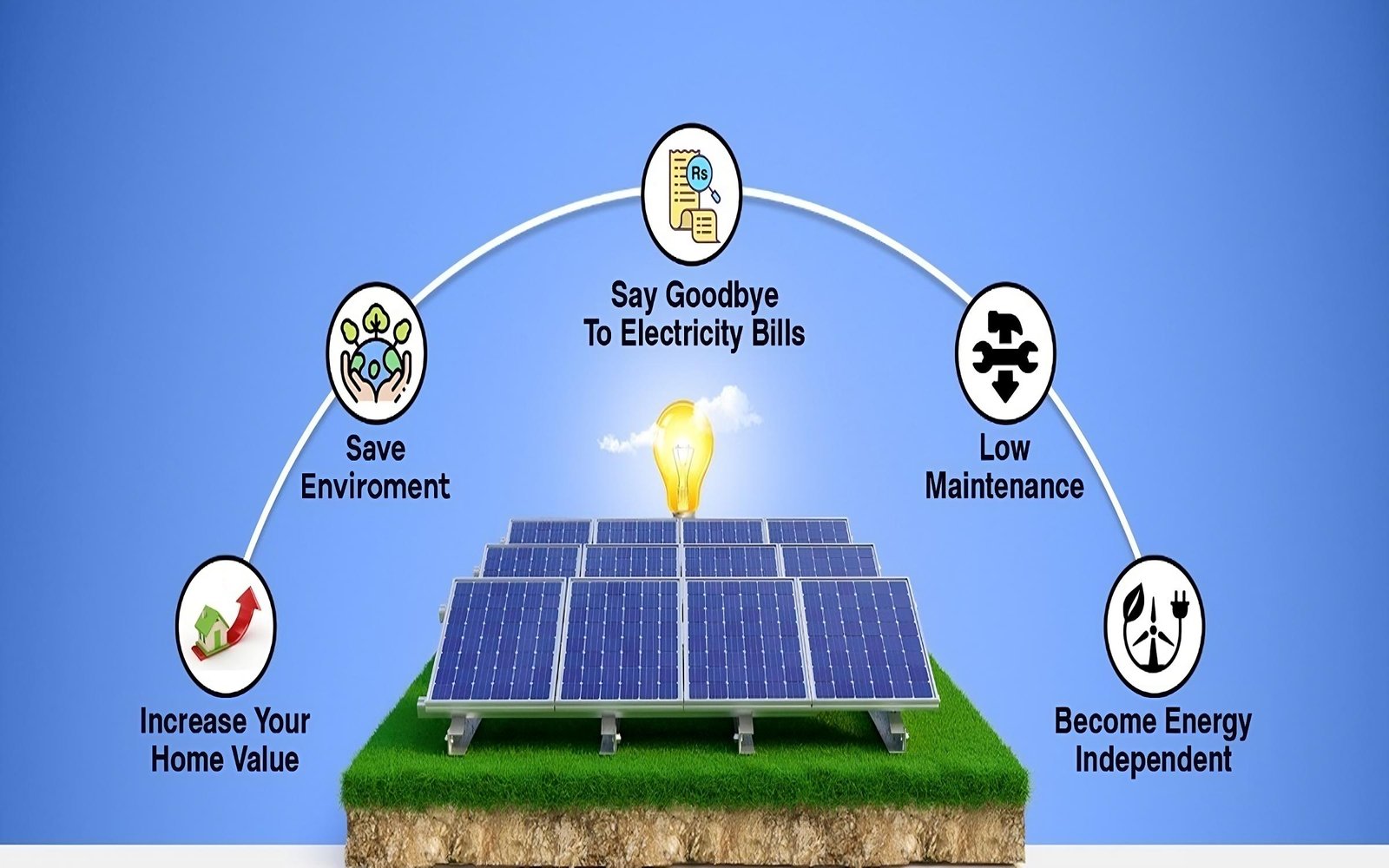Solar energy for residences is a hot topic, and rightfully so. The amount of solar connected to the electric grid has grown exponentially in the past several years, and there are now nearly 4 million American households that are already generating their own power with solar energy.
This clean energy source is making the electric grid more dependable while helping solar homeowners save money and improve the value of their homes. With all of this interest and so much information available, Energy Saver wants to take a moment to highlight five benefits of residential solar:
Residential solar is more affordable than ever, especially with the extension of the federal residential solar tax credit. Taxpayers can claim a 30% tax credit on the cost of solar systems on their income taxes. There are also a number of different financing options to make purchasing solar systems easier and with less money upfront. The monthly amount owed on a solar loan is typically less than an average utility bill.
Solar will save you significant money on your monthly utility bill, and with utility bills trending upward, solar will remain a good money-saving option for years to come. The amount you save depends upon how much electricity you consume, the size of your solar energy system, and how much power it is able to generate. You may also opt for a leased, third-party owned system that allows a homeowner to host a solar energy system on their rooftop and purchase back the electricity generated at a discounted rate, which is not only is often less than utilities charge customers, but also allows electricity rates to be locked in for years.
Buying a solar energy system will likely increase your home’s value. A Berkeley National Laboratory study found that solar photovoltaic panels are viewed as upgrades, just like a renovated kitchen or a finished basement, and home buyers across the country have been willing to pay a premium for a home with an average-sized solar array. As for third-party owned systems, it appears that the impact is largely neutral but can occasionally add value, especially for prepaid leases.
Solar panels only need one thing to generate electricity — sunshine! Even in the winter when there are fewer hours of daylight, there is still a sufficient amount to power the average American home in Alaska, even during its harshest of winters. The U.S. Department of Energy’s Solar Energy Technologies Office (SETO) is dedicated to ensuring solar panels can withstand the elements no matter your location. SETO funds five Regional Test Centers across the country — each in a different climate — to make sure panels perform as best they can, regardless of climate or weather.
Instead of relying on fossil fuels such as coal or natural gas for energy, solar panels are an efficient and clean alternative. Using solar panels reduce carbon dioxide and other greenhouse gases that are released into the atmosphere due to the burning of fossil fuels. What’s more, solar energy is renewable, meaning it will never run out, while fossil fuels are finite resources that will eventually be depleted.

By harnessing the power of the sun, solar panels can help to reduce air pollution and protect the environment for future generations. Add in the fact that solar panels are cheaper to install and maintain than traditional energy sources in the long run, and they’re an increasingly attractive option for many homeowners.
As a renewable source of power, solar energy has an important role in reducing greenhouse gas emissions and mitigating climate change, which is critical to protecting humans, wildlife, and ecosystems. Solar energy can also improve air quality, reduce water use from energy production, and provide ecosystem services for host communities through carbon sequestration, pollination, and ground and stormwater management.
